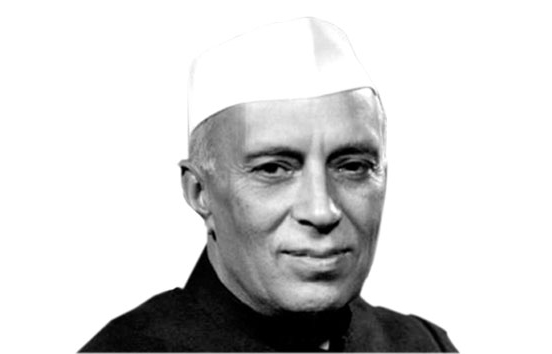
"Long years ago we made a tryst with destiny, and
now the time comes when we shall redeem our pledge, not wholly
or in full measure, but very substantially. At the stroke of
the midnight hour, when the world sleeps, India will awake to
life and freedom. A moment comes, which comes but rarely in
history, when we step out from the old to the new, when an age
ends, and when the soul of a nation, long suppressed, finds
utterance. It is fitting that at this solemn moment we take
the pledge of dedication to the service of India and her people
and to the still larger cause of humanity." (Jawahar
Lal Nehru)
Jawahar Lal Nehru, considered to be the architect
of modern India, was the first Prime Minister of independent India.
He was a member of the Congress Party that led the freedom movement
against the British Empire. He was also the chief framer of domestic
and international policies between 1947 and 1964. Nehru came to
be respected as a world statesman for his policies of peace, secularism
and non- interference in any country's internal affairs. Popularly
known as Chachaji, Jawaharlal Nehru was a passionate advocate
of education for India's children and youth, believing it essential
for India's future progress.
Jawaharlal Nehru was born on November 14, 1889
in Allahabad, Uttar Pradesh His father Motilal Nehru was a famous Lawyer and
a great Patriot. After completing his graduation from Cambridge
University in 1910, Nehru went to London and stayed there for
2 years to pursue law. In 1912, Nehru returned to India and enrolled
in Allahabad court. Later in 1920's, he plunge into national politics
and became an early leader of Indian Independence Movement. Nehru
was elected as the President of Indian National Congress for five
terms. It was under the President ship of Nehru that Congress
adopted the famous resolution of complete independence at its
Lahore session in 1929. He had been jailed for a long time, during
this period Muhammad Ali Jinnah, his former colleague in
Congress
dominated Muslim politics in India. Negotiations between Nehru
and Jinnah on political power sharing failed and that resulted
in the partition of Independent India in 1947.
When the country gained freedom in 1947, Nehru
became its first Prime Minister and remained for 17 long years.
In 1951, Jawaharlal Nehru launched the country's "First Five-Year
Plan" emphasizing on the increase in the agricultural output.
Under Nehru, India made Technical and Industrial advances. He
has been admired as a leader of the freedom movement, as the
founding father of institutional democracy in India and as the
architect of India's policy in all its manifestations. In 1964,
Jawaharlal Nehru suffered a stroke and a heart attack. On 27 May
1964, Nehru passed away. He was survived by his only daughter
Indira Gandhi who after two years succeeded him as the Prime Minister of India.
Nehru was a man of letters. His most famous books
are his 'Autobiography', 'Glimpses of world History' and 'Discovery
of India'. Nehru loved Children a great-deal. Every year his birthday
is celebrated as 'Children's day'.
(Updated on 4/6/2014)
|

